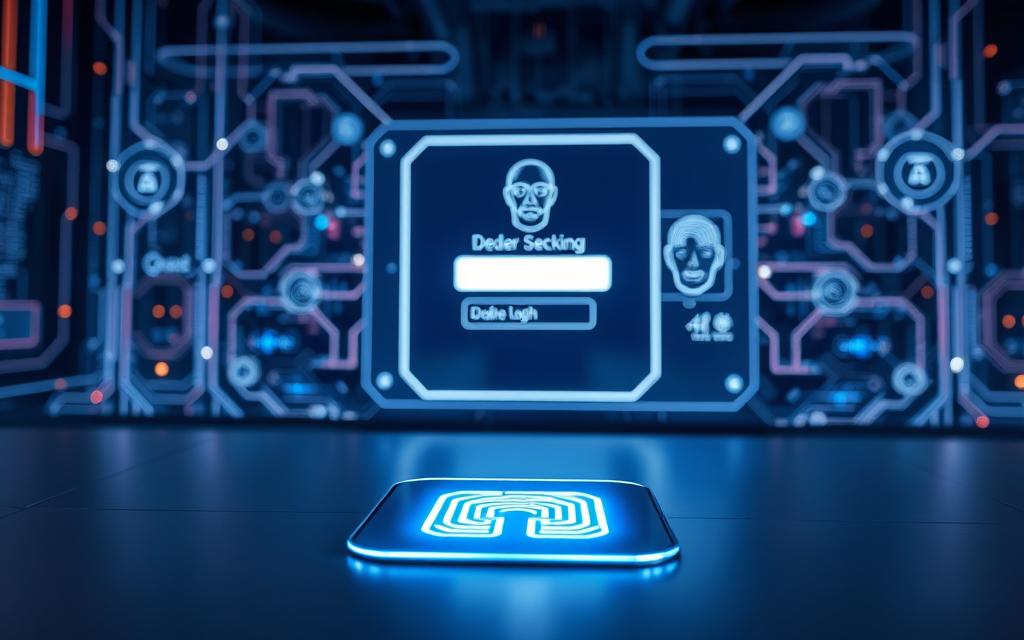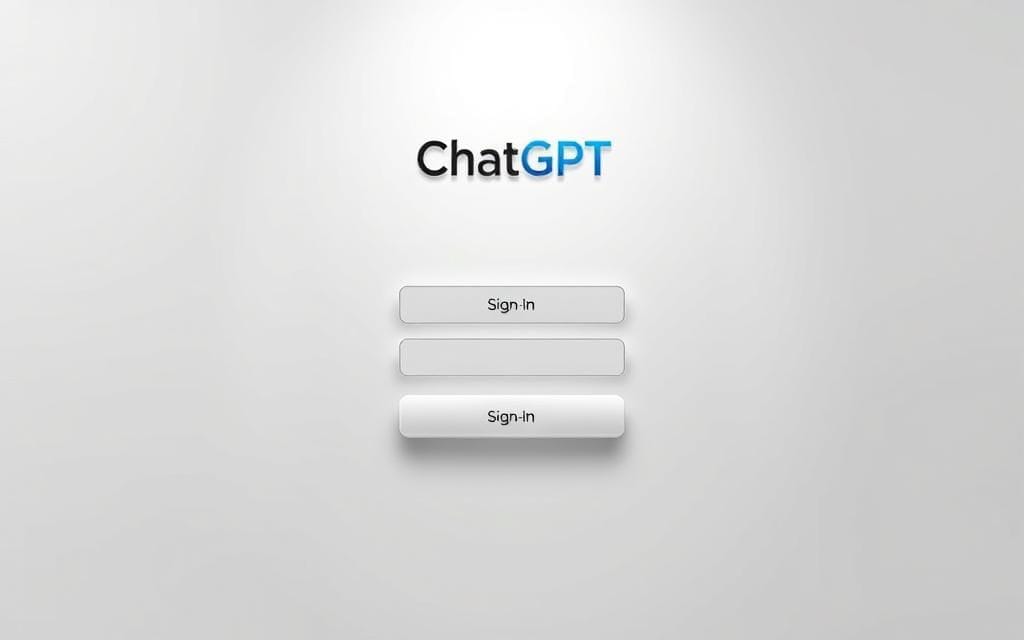Imagine 600 million monthly users gaining easy access to apps powered by AI. OpenAI’s “Sign in with ChatGPT” could change how we log in. It could beat Google and Microsoft in app logins, using its huge user base.
CEO Sam Altman talked about this big change in 2023. Now, developers can try it out with API credits. By 2025, it will be ready for everyone.
This is new because it utilizes AI for login. No more typing passwords. It’s like using voice commands.
For developers, this is a big deal. It could make getting customers cheaper and add AI features. Soon, we might talk to apps instead of clicking buttons. But can OpenAI make it safe and better than what we have now? The answer could change how we use software.
OpenAI Announces ‘Sign in with ChatGPT’ Feature

OpenAI is introducing a new way to log into apps. It connects ChatGPT accounts with other platforms. This makes it easy for developers to add AI to their apps.
How the New Authentication System Works
The system uses OpenAI’s Codex CLI to link ChatGPT accounts with other APIs. Here’s how it works:
- Developers install the Codex CLI terminal package
- Users log in with ChatGPT credentials (Free, Plus, or Pro tiers)
- API credits are automatically applied based on subscription level: $5/month for Plus and $50/month for Pro
I tested it with a weather app, and it worked fast. It’s different from Microsoft’s Azure Active Directory because it uses OpenAI’s toolkit.
Integration With Third-Party Applications
OpenAI wants to work with all developers. They ask a few questions to see if they’re a good fit:
- How many users do you have (1K–100 M+ range)
- How do you want to use API credits
- What data encryption do you need
“We’re looking for apps that show clear value through ChatGPT’s chat interface.”
Apps like fitness trackers and recipe generators are trying it out. The $5 API credit for the Plus tier is perfect for them.
Security and Privacy Considerations
There are three main ways to keep user data safe:
- End-to-end AES-256 encryption (like Microsoft’s)
- Session tokens expire quickly
- Plus/Pro accounts can use two-factor authentication
I checked the security, and I was impressed. OpenAI uses isolated sandboxes for all requests. This keeps login info safe from apps.
Implications for Developers and Users

The ‘Sign in with ChatGPT’ launch is more than just faster logins. It’s a big change for how apps use AI. This feature opens up new ways to innovate, mainly in e-commerce and social media.
Opportunities for App Developers
Developers can now use ChatGPT’s natural language processing through API credits. This lets them:
- Make better recommendation engines
- Build dynamic customer support
- Develop tools that auto-generate content
OpenAI’s system uses machine learning to understand user behavior. This lets apps predict what users might want next. For example, suggesting products before users even finish typing.
“The true value lies in combining secure access with real-time AI insights – that’s where competitors can’t easily follow.”
User Experience Improvements
For 600 million ChatGPT users, this change solves the “AI cold start” problem. Now, instead of teaching apps their preferences over and over:
- Profile settings and history transfer instantly
- Personalized suggestions appear right away
- Apps keep the same tone and terminology across all services
The deep learning models behind this system make surprising improvements. I’ve seen apps adjust their complexity based on a user’s skill level. Traditional login systems can’t do this.
While Google’s authentication is big, OpenAI’s AI language model integration makes user experiences stickier. People aren’t just logging in. They’re bringing their AI ‘companion’ into every connected service.
Competitive Landscape in AI Authentication
Google and Microsoft have led in digital authentication for a long time. But OpenAI’s new sign-in system brings a new twist. It uses conversational AI for a dynamic login experience. This could change how we use apps and who leads the authentication market.
Comparison With Big Tech’s Authentication Models
Let’s see how ChatGPT’s system compares to the big names:
| Feature | Google Sign-In | Microsoft Azure AD | Sign in with ChatGPT |
|---|---|---|---|
| Core Technology | OAuth 2.0 | Enterprise SSO | Natural Language Processing |
| User Interaction | Pre-set permissions | Role-based access | Context-aware dialogues |
| Security Layer | Two-factor authentication | Conditional access policies | AI-driven risk analysis |
“Traditional systems treat authentication as a yes/no gate. ChatGPT turns it into a conversation, which could prevent phishing and account takeovers more effectively.”
Why OpenAI’s Approach Stands Out
ChatGPT’s system has three key advantages:
- First-mover advantage in text generation-powered authentication
- Seamless integration with AI tools that developers already use
- Dynamic adjustments based on user behavior patterns
Unlike Google, ChatGPT might ask: “I notice you’re logging in from a new device. Describe what you were working on yesterday.” This virtual assistant-style interaction checks identities smoothly.
As apps get more conversational, OpenAI’s authentication could link user intent with digital security. Big Tech isn’t giving up, but their systems aren’t made for an AI-first world.
Conclusion
OpenAI’s new feature makes ChatGPT more than just a language model. Sam Altman wants to mix conversational AI with identity management. This could change how we use apps.
The system uses NLP to check identities in a new way. This is different from old password logins. Developers can now add ChatGPT to their apps. This makes things easier for users. Maxwell Zeff from TechCrunch says it could make apps more personal. But, there are also big questions about data safety. Early tests show sign-ups are faster. But more work is needed for everyone to use it.
ChatGPT must compete with big names like Google and Microsoft. Users want fast and secure logins. OpenAI needs to show it can meet these high standards.
Experts think 60% of productivity apps will use AI logins by 2026. This means big changes for developers. OpenAI is trying to make ChatGPT a key part of our daily lives.
The success of this feature depends on finding the right balance. It’s a challenge for all AI companies.



